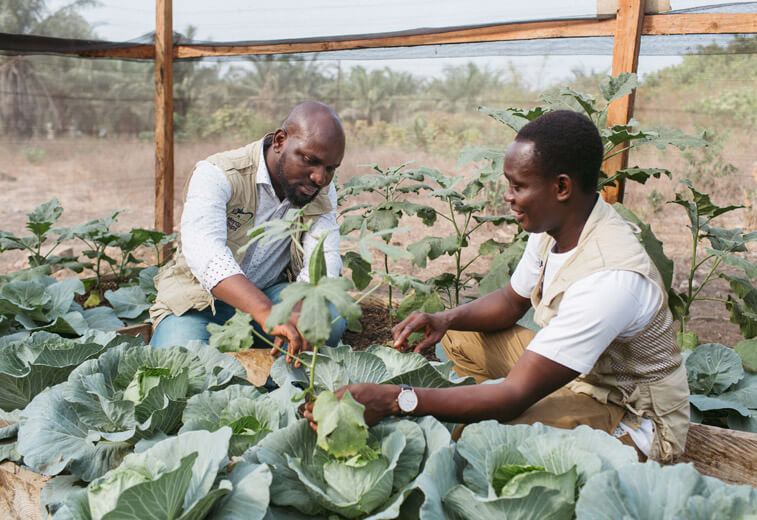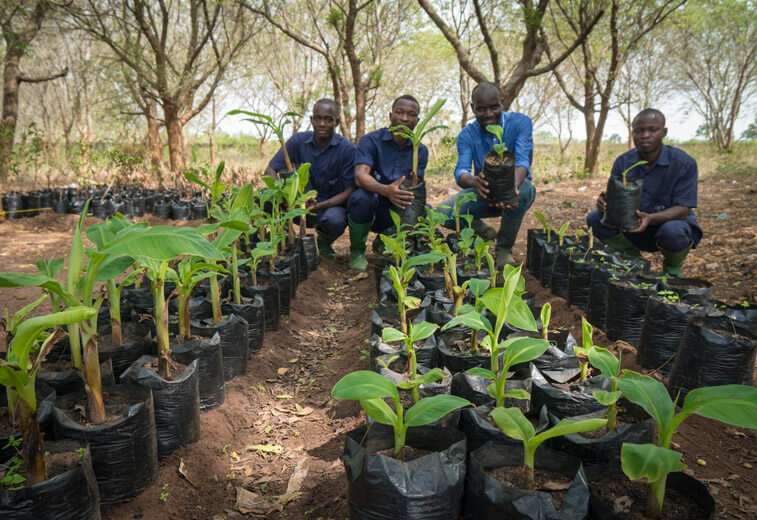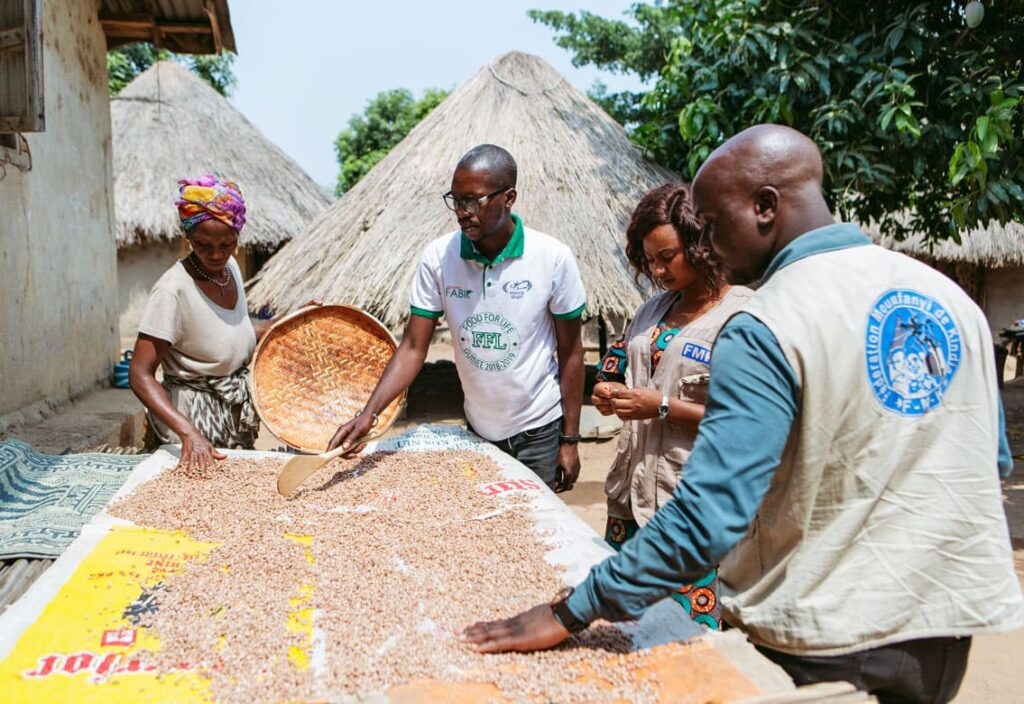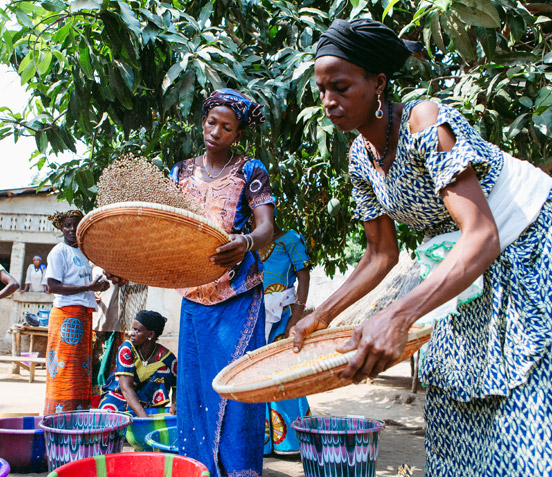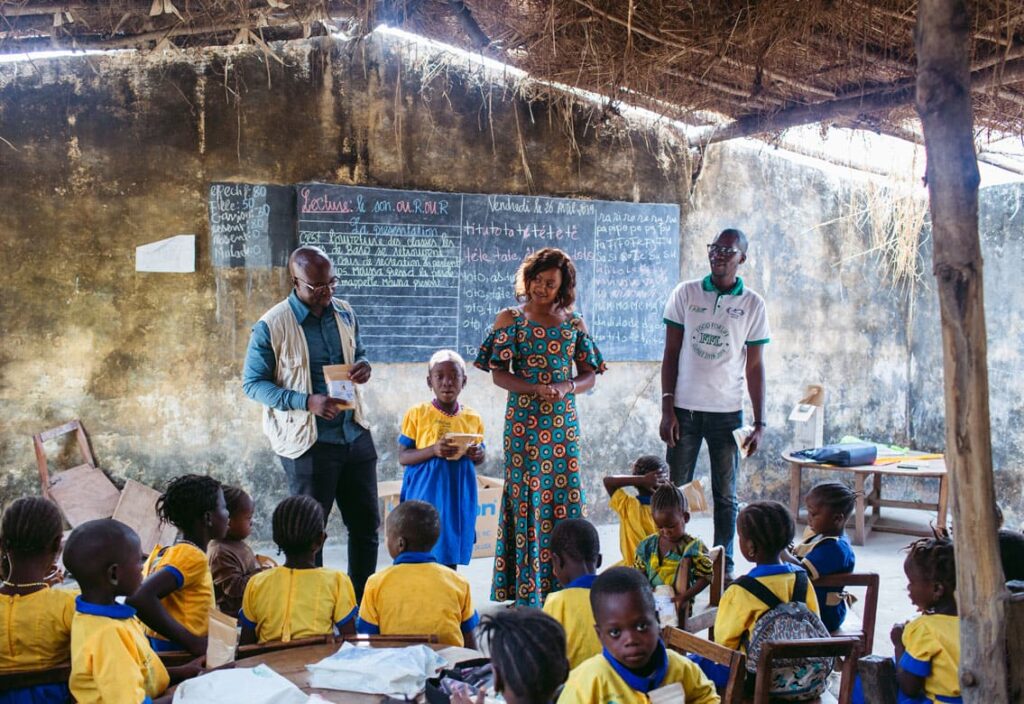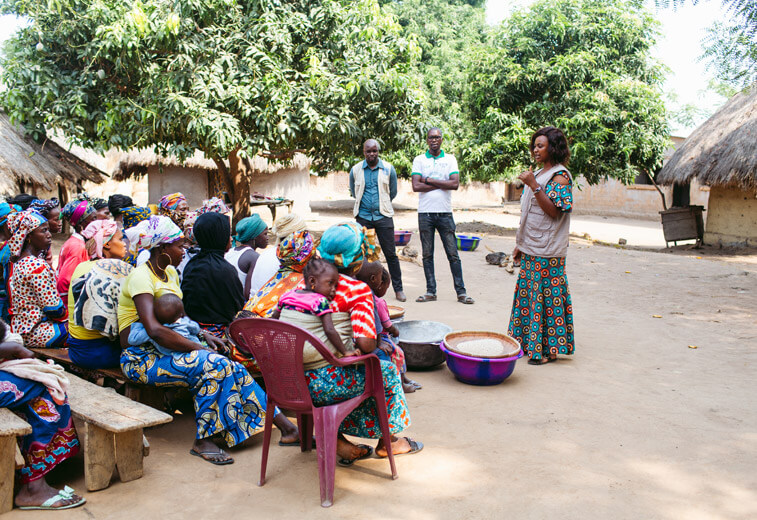
Agriculture Training
“Good health starts with good nutrition”
Mercy Ships recognizes that people need more than just access to healthcare – they need access to food and nutrition. To help address these issues in Africa, Mercy Ships has been implementing Food for Life programs since 1997. Food for Life projects have been impacting lives and training people how to produce nutritional food and crops sustainably.
Our projects help others discover significantly improved methods of food production and preparation – working with them to rebuild, restore and renew their lives, land, communities and nations through holistic, organic agricultural development.
The problem
Farming practices in much of Africa do more harm than good. Slash and burn, pesticides, herbicides and other methods lead to the production of poor harvests and deplete the soil’s nutrient levels, leaving behind infertile ground.
Statistics (source: World Hunger)
- An estimated one in four people remain undernourished in sub-Saharan Africa; 239 million people are hungry (have insufficient access to food).
- Children who are poorly nourished suffer up to 160 days of illness each year. Poor nutrition plays a role in at least five million child deaths each year.
Nutritional Agricultural Training Programs
Bringing Hope and Healing
Food for Life projects work alongside the Africa Mercy’s deployment schedule, providing training and resources in the countries served by Mercy Ships. The Food for Life program focuses on providing train-the-trainers opportunities, increasing a country’s capacity to provide for their own people. Trainees are identified from local NGOs already working to improve agriculture in the host country. The project is offered in a two-phase approach during a ship deployment. The first phase consists of a 22-week course, and the second phase involves follow-up assistance as the trainees return to their respective NGO site to train others. Once trainers successfully complete the program, they are provided with seeds, tools and other resources so they can provide training to their friends and communities.
Perpetuating a Legacy
Through its history and experience, the Food for Life program has found that the most successful and long-lasting projects are the ones that have received support beyond the life of the project. Because of this, Mercy Ships is providing targeted, concerted follow-up activities developed specifically for each country.
Accomplishment
Since 2009, Mercy Ships has trained and updated the methods of over 390 nutritional agricultural trainers serving a number of well-established NGOs in Africa.
Learn more about our medical response
Women’s Health
Support and medical care is provided for women who have suffered childbirth injuries. We provide extremely specialized surgery, continuing the recovery process through education and social activities.
Maxillofacial Surgery
Through corrective and reconstructive maxillofacial surgeries, our surgeons relieve deformities caused by physical conditions such as tumours, cleft lip, cleft palate and noma.
Plastic Reconstructive Surgery
Birth defects, burns and illness often cause deformities we correct through surgeries; including burn-scar contractures, benign tumours, chronic ulcers, combined fingers and many others.
Orthopaedic Program
Mercy Ships trains local surgeons in Ponseti casting, the “universal standard” in non-invasive clubfoot correction, and provides free surgical intervention for musculoskeletal conditions, neglected orthopedic trauma and joint diseases.
Palliative Care
Palliative care is an approach that improves the quality of life of patients and their families facing the difficulties associated with life-threatening illness.
General Surgery
Our surgeons reduce the effects of neglected trauma, disease and congenital conditions by providing general surgeries for conditions such as hernias and goiters.
Dental / Oral Health
Mercy Ships aims to prevent and reduce the effects of a lack of oral healthcare by providing dental treatment and dental hygiene education.
Eye Care
Addresses surgical and medical eye needs in environments where preventable blindness is widespread. The primary emphasis is to reduce blindness as a result of cataracts.

